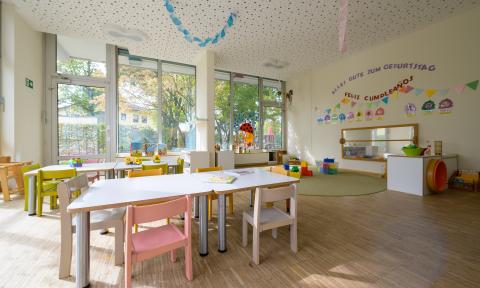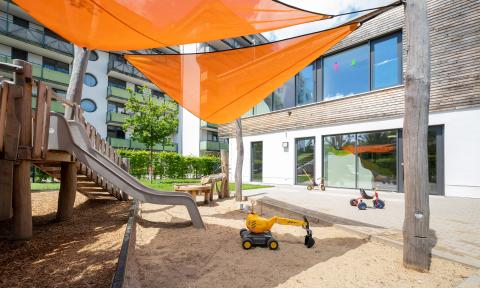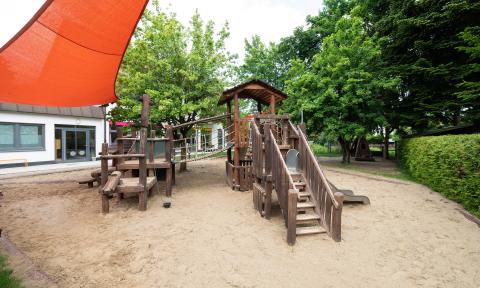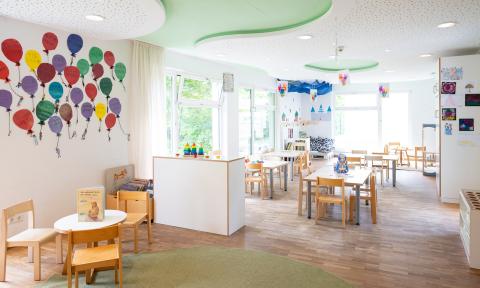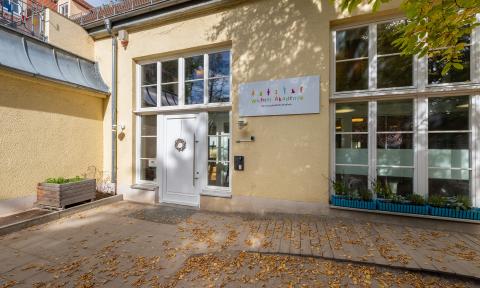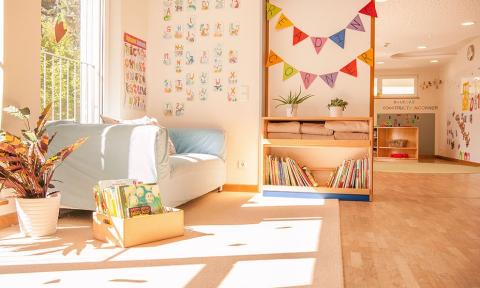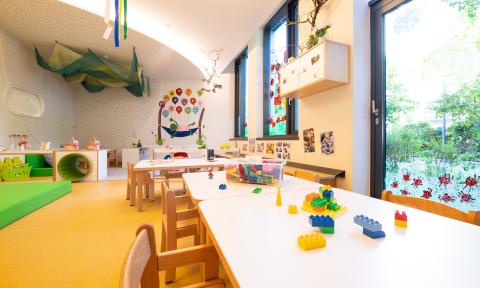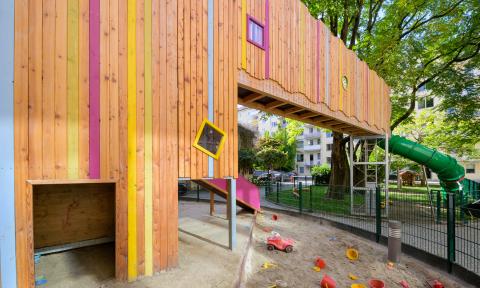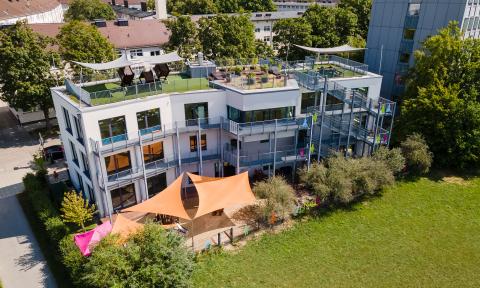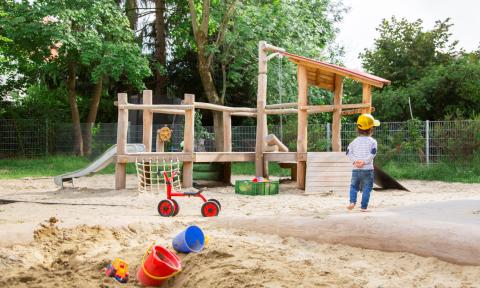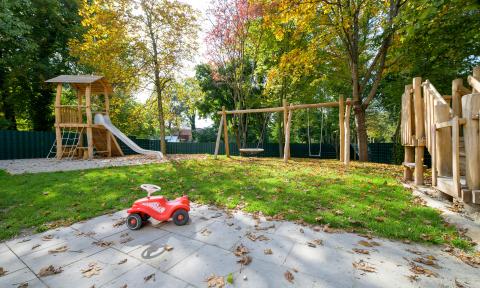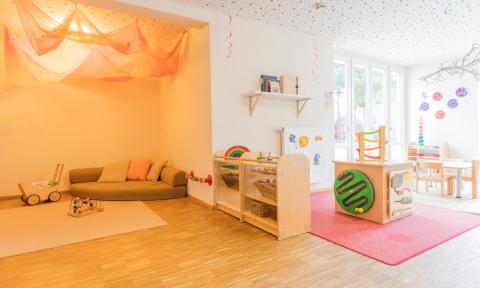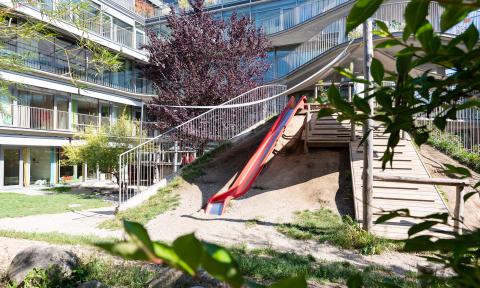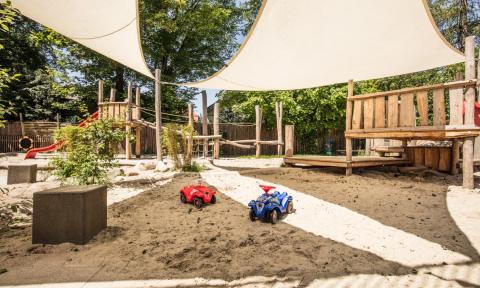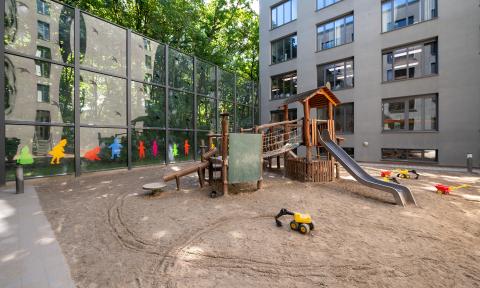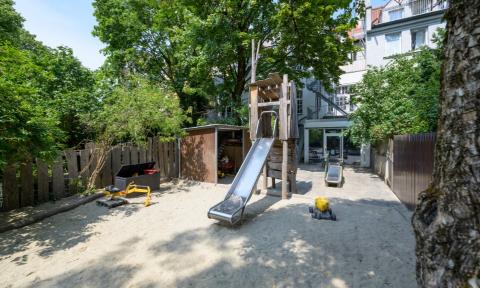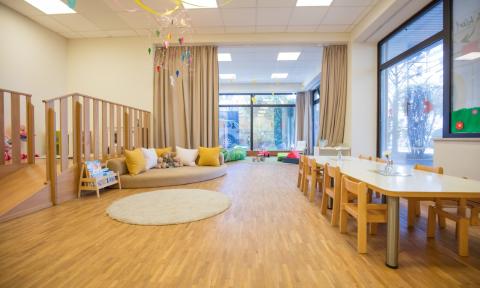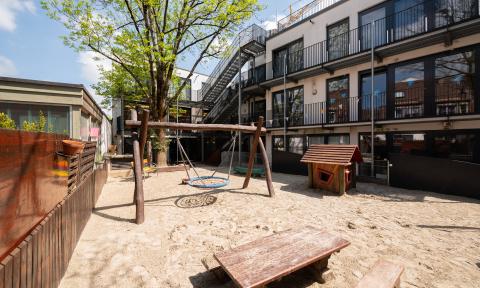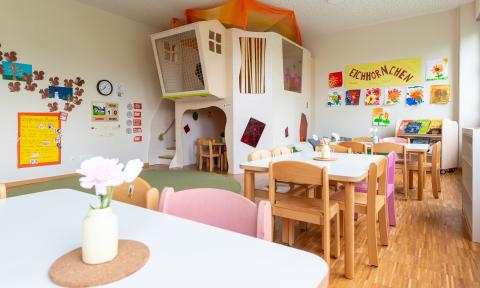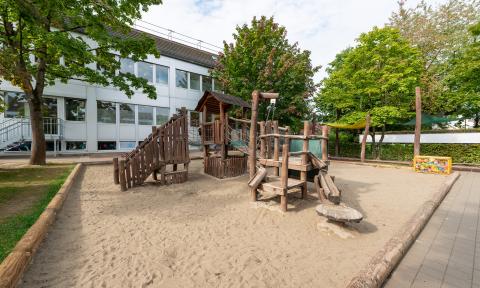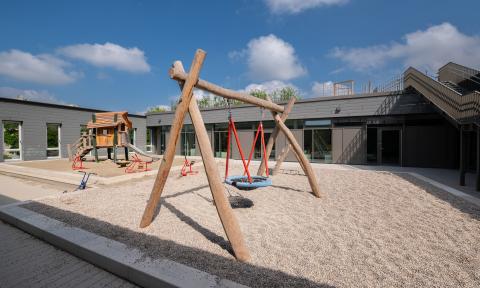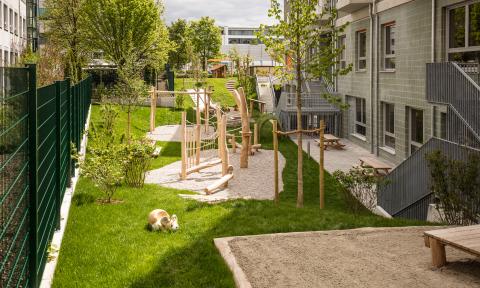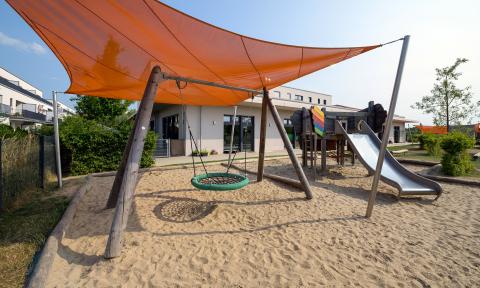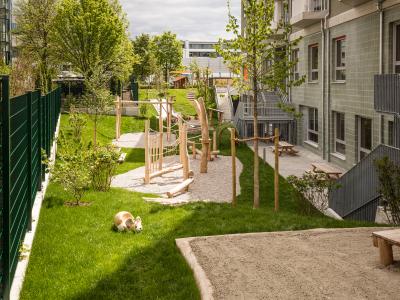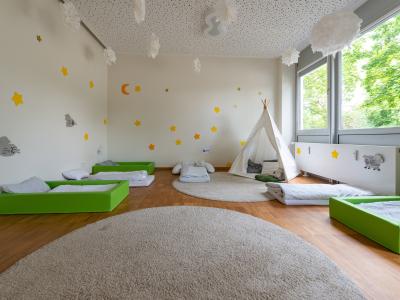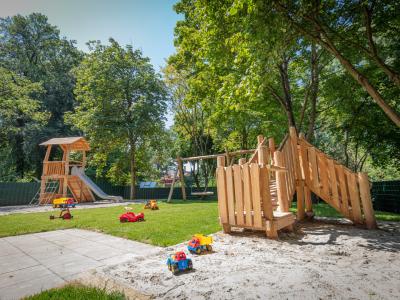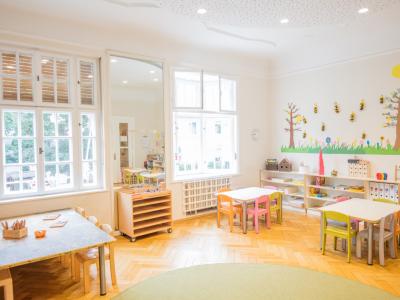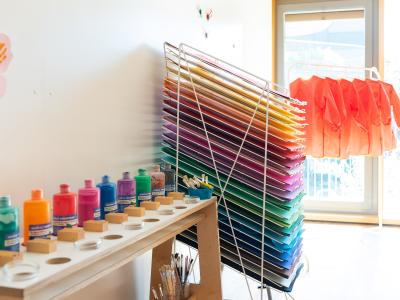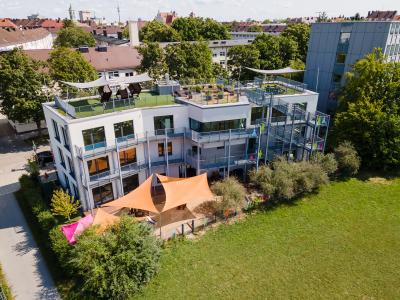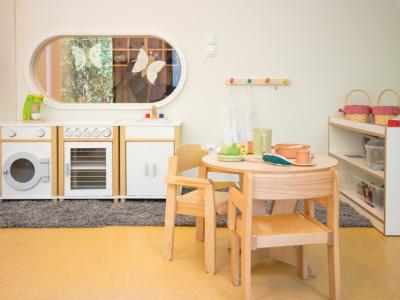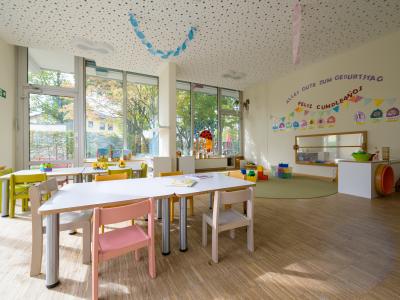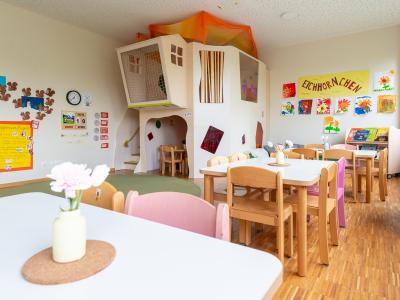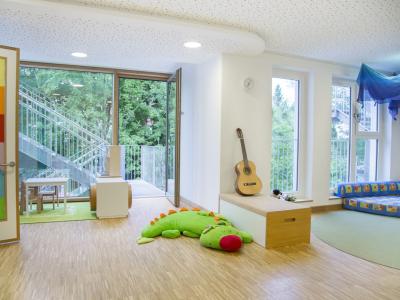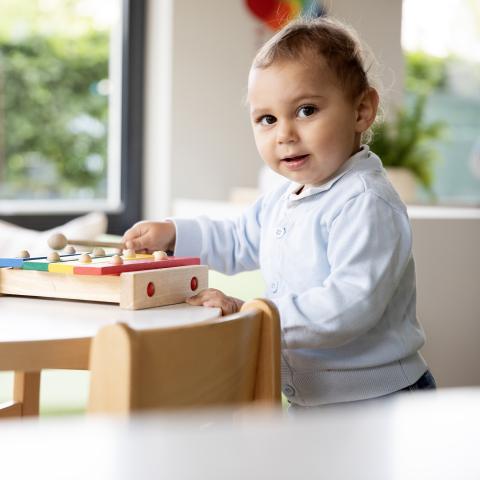
Private crèches and kindergartens
Your child doesn't need just any daycare place.
It needs the right one!
Your child will find a second home at the Wichtel Akademie. It will experience security, education and the best development opportunities. One of our over 20 privately run daycare centers in the greater Munich area - including Vaterstetten - is sure to be near you.
Why parents choose us
Our daycare center locations in Munich and Vaterstetten: Find a daycare center near you
What our parents say about the Wichtel Akademie
Hand in hand: Adapted to the life of your family
Career & family in harmony: You can be proud of your career and your young family. You will receive our full support to ensure that both harmonize.
At our daycare center, your child will experience loving care and individual support. We discover talents, strengthen personalities and learn through play - from STEM experiments to language and music to varied exercise.
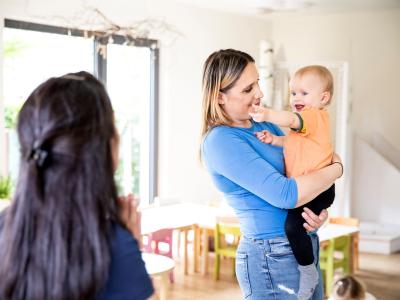
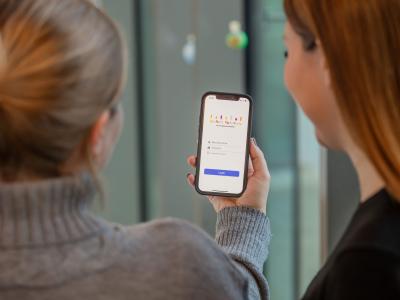
Separated during the day but still connected
With our parent app, you always stay close to the action and receive updates on your child's activities, excursions and experiences. Transparent and trustworthy.
FAQs - Important questions and answers
How does the Wichtel Akademie support my child's individual development?
We strengthen each child individually through targeted educational activities and close cooperation with parents. Regular discussions and observations help us to accompany and support the developmental steps of each child. We focus on the individual and our educational work is characterized by a sense of security and relationship-based care. Our educational standards have been developed in practice over many years and apply to all Wichtel Akademie facilities. This enables us to guarantee that all our daycare centers implement our high educational standards.
Are there fixed exercise programs and rooms in the facility?
The Wichtel Akademie'smovement concept is a central component of everyday educational activities. We offer regular exercise programs with our sports instructors in specially equipped rooms and outdoors to strengthen the children's motor development. This also includes trips to the climbing park, ice skating and tobogganing, as well as our in-house Wichtel Olympics.
What languages are spoken at the Wichtel Akademie?
We offer bilingual education with German and English at many locations.We have native English educators especially for English. The children playfully learn both languages in everyday life and benefit from early language support. Many locations, such as Parkstadt Schwabing , are also characterized by a great deal of cultural diversity, where the children also come into contact with languages such as Indian, Chinese, Spanish, Italian and Korean. This not only promotes curiosity and tolerance for other cultures, but also intercultural competence.
Is attention paid to a healthy and balanced diet?
Yes, we attach great importance to healthy eating habits. Our nutritional concept includes balanced meals with fresh ingredients, some of which come from the Amperhof organic farm in Olching. The meals consist of a balanced mix of fresh vegetables, fish, meat, filling side dishes and vegetarian alternatives. The menu is supplemented with healthy snacks such as fruit, yogurt and wholemeal products. Eating meals together not only promotes a culture of eating, but also social interaction.
How long does the settling-in phase usually take?
Familiarization at the Wichtel Akademie takes place in seven phases and is individually adapted to the child's needs. It is completed when the child has established a stable relationship with the educational professional and feels secure in everyday life at the daycare center. The duration therefore varies greatly and is very individual. On average, children are settled in after four to five weeks in the crèche and after one to two weeks in the daycare center.
What does a typical day at the Wichtel Akademie look like?
Our daily routine offers a balanced mix of educational activities, free play and rest periods. We pay attention to the biological rhythm of the children and promote learning in mixed-age groups.
When are children prepared for school?
Preparation for school actually begins at nursery entry, as learning is a lifelong process. In the last year of kindergarten, however, we focus in particular on promoting school readiness. Through targeted activities, we strengthen skills such as independence, concentration and social skills to make the transition to school easier.
How is sustainability integrated into everyday daycare?
Sustainability or sustainable education is an integral part of our educational concept. We raise environmental awareness through creative projects such as the vegetable garden, which was awarded the Öko-Kids prize, or through craft projects in which we recycle various materials. The aim is to teach children how to use resources responsibly through play.
